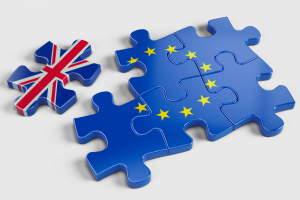Noticias
-
GRAMMAR DOCTOR vía Zoom
Clases de refuerzo para alumnos First1 y First2
-
Becas Inglés Curso 25-26
¡CONVOCATORIA YA ABIERTA! - 25 becas de inglés para alumnos de 3º de ESO
-
RENOVACIÓN 2025 - Crédito Fundae Empresa
Bonifica la FORMACIÓN DE IDIOMAS de tu empresa
-
VIAJES Y COLONIAS EN INGLÉS - VERANO 2025
En Cataluña y en el extranjero.
April article
Lunes, 1 de Abril de 2019‘Brexit from a British point of view’ by Emma Hearle
In a June 2016 referendum, Britain shocked the world by voting to leave the 28-nation bloc they’d joined in 1973. The way the “Brexiteers” saw it (those in favour of leaving), the EU is expensive, out of touch and a source of uncontrolled immigration. They chose what’s become known as Brexit.
Voters supported the split by 52 percent to 48 percent after a rancorous 10-week campaign that exposed anxieties about globalization and raised questions about the consequences for a united Europe. The vote jolted financial markets, sending the U.K. currency tumbling on the prospect of years of uncertainty about how Brexit will work. Younger voters and residents of cosmopolitan London voted overwhelmingly to remain in the EU. So did voters in Scotland. The U.K. agreed to hold the ballot after rising euroscepticism fed support for the anti-EU U.K. Independence Party, which won 13 percent of the vote in the 2015 general election. U.K. Prime Minister David Cameron resigned after the surprise referendum result and was replaced by Theresa May, who triggered a two-year process to negotiate Britain's exit from the block.
The U.K. waited 16 years to join the European Economic Community after it was formed in 1957, and some people immediately argued that it should pull out. Prime Minister John Major’s government almost fell in 1993 when some of his party’s lawmakers voted against him signing the Maastricht Treaty, which deepened cooperation and created the EU. The same euroscepticism kept Britain from adopting the Euro when it was launched in 1999. The bloc added eight eastern European countries in 2004, triggering a wave of immigration that strained public services. In England and Wales, the share of foreign-born residents had swelled to 13.4 percent of the population by 2011, roughly double the level in 1991. In the years before the Brexit vote, migrants were lured by Britain’s economy, which was growing at twice the pace of the euro zone’s. Because the free movement of citizens is a basic principle of EU law, leaving the bloc, as the Brexiteers will for sure let you know, is the only sure way for the U.K. to stem the flow of people. Before the vote, the U.K. was the second-biggest EU country by economic output and the third-largest by population, after Germany and France. There’s still a queue of countries waiting to join the bloc.
So why exactly did so many Britons want out? There were three main issues: economics, immigration, and identity. The economics issue was that the U.K. sends money to Brussels (the HQ of the EU), which then gets redistributed to the various other member states. The arguments of those in favor of Brexit — the Leave campaign — sounded similar to Americans who complain about funding which goes to national programs. "Why should we have to pay for that?" The Remain campaign, on the other hand, argued that leaving the EU (and its common market, in which Britain can sell goods to all EU states under favorable terms) would wreck the British economy, and possibly the world economy.
The immigration controversy follows similar lines, but is way more charged. Any citizen of an EU member state can relocate and work in the U.K. without needing a work visa. Most economists agree that this is good for the economy, but right-wingers complain that non-U.K. citizens are coming in and using up already-scarce public resources, like the National Health Service (NHS) and welfare. Anyone who's been engaged in America's immigration debate will find this familiar, especially all the implicit racist overtones. Indeed, Nigel Farage, current leader of the Brexit Party, could definitely give Donald Trump a run for his money in the outrageous remarks department.
But perhaps most importantly, people in the U.K. don't generally see themselves as European, and the question of British identity within the EU is a complicated one. As a member state, the U.K. must abide by various EU policies, some of which can seem ridiculous or overly constricting, like rules on bananas and pet horses! Essentially, The Leavers argue that Brexiting would allow the U.K. to take control back over its laws.
However, no one knows how things will turn out. Hard-line Brexiteers have been seeking a no-deal exit, meaning the U.K. would leave the EU with no agreements in place about what their relationship would be like in the future. They fear that if nothing is approved by the new April deadline, the government could be forced to seek a much longer extension on the withdrawal date – which could give backers of a second referendum time to build support for what currently seems a long-shot option. That could end in Britons reversing their decision to leave the European Union altogether.
There are other possibilities, too, like a general election that could put May on more solid footing in Parliament — or lead to a government that might negotiate a soft Brexit deal that would keep Britain closer to the bloc. No one really knows what’s going to happen. One thing is for certain though: It is a big mess!










 Tel. 93 655 05 58
Tel. 93 655 05 58 Enviar WhatsApp
Enviar WhatsApp



![[...]](https://www.cambridgeschool.com/xtra/imgs/loading.gif)